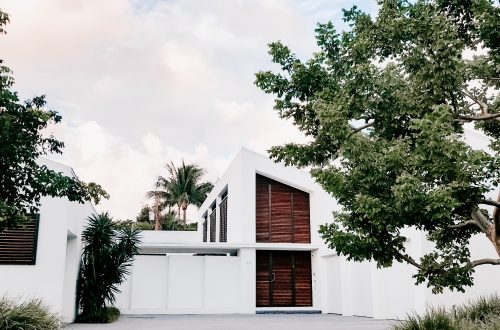
7 Things Nobody Tells You About Homeowners Insurance
When you buy a home, one of the first things you’ll need is homeowners insurance. You’ll probably hear the basics—what it covers, how much it costs, and why your lender requires it. But beyond the brochures and quotes, there’s a lot more to know. Some things only become obvious after you’ve filed a claim or had your policy for years. Here are seven things nobody tells you about homeowners insurance but definitely should:
1. Your Policy Probably Doesn’t Cover Everything You Assume It Does
Many homeowners are surprised to find out their standard policy excludes certain disasters. For instance, floods and earthquakes are almost always excluded. If you live in a high-risk area, you’ll need to purchase separate flood or earthquake insurance. Similarly, damage caused by neglect, pests (like termites), or gradual wear and tear isn’t covered. Always read the fine print—you might assume you’re covered until the day you file a claim and realize you’re not.
2. Replacement Cost ≠ Market Value
You might assume your policy is based on the market value of your home, especially if you live in an area with soaring real estate prices. But that’s not the case. Most policies cover the cost to rebuild your home (replacement cost), not what you could sell it for. Depending on construction costs, this number could be much lower—or higher—than your home’s market value. It’s crucial to understand the difference so you can avoid being underinsured.
3. Your Belongings Might Be Covered… But Not Fully
While homeowners insurance usually includes personal property coverage, there are limits on high-value items like jewelry, art, electronics, and collectibles. Standard policies might only cover up to $1,500 or $2,500 for these items, which might not scratch the surface of their actual worth. If you have expensive belongings, you’ll need to purchase additional riders or endorsements to ensure they’re properly protected.
4. There Are Strict Limits on Mold and Sewer Backup Claims
Two of the most common, and costly, household issues—mold damage and sewer backups—often come with low coverage limits or exclusions entirely. Many policies cap mold remediation at a few thousand dollars, regardless of the total damage. Sewer backups usually aren’t covered without specific endorsements. These situations can cost tens of thousands to fix, so it’s smart to add coverage if you’re in a vulnerable area.
5. Your Credit Score Affects Your Premiums
What does your credit score have to do with your homeowners insurance? A lot, actually. Insurers often use a credit-based insurance score to help determine your rates. A higher score could mean lower premiums, while a poor score might leave you paying significantly more—even if you’ve never filed a claim. It’s one of those behind-the-scenes factors many people don’t realize plays a role.
6. Claims Can Raise Your Rates (Even Minor Ones)
You might think, “That’s why I have insurance—I’ll file a claim for every issue!” But here’s the catch: every claim you file, no matter how minor, goes on your record and can affect your future premiums. Multiple claims within a short period could cause your rates to spike or even result in non-renewal. It’s wise to weigh the cost of small repairs versus the potential long-term cost of higher premiums.
7. You Can Shop Around Anytime (Not Just at Renewal)
Most people think they’re stuck with their homeowners insurance policy until the annual renewal date. Not true! You can switch providers at any time without penalty. If you find a better rate or more comprehensive coverage elsewhere, your current insurer will prorate any unused premium and refund you. It’s a good idea to shop around every year or two—not just when the policy is up for renewal—to make sure you’re getting the best value.
Get A Quote
Homeowners insurance is one of those things people often don’t think about—until they really need it. But knowing these lesser-known facts can save you time, money, and stress. Instead of assuming you’re fully covered, take the time to review your policy, ask questions, and consider additional coverage where needed. After all, your home is likely your biggest investment. Protecting it properly starts with understanding the fine print no one talks about.
For an affordable car insurance quote, contact us today by calling (541) 318-8835 or click here to connect with us online.




